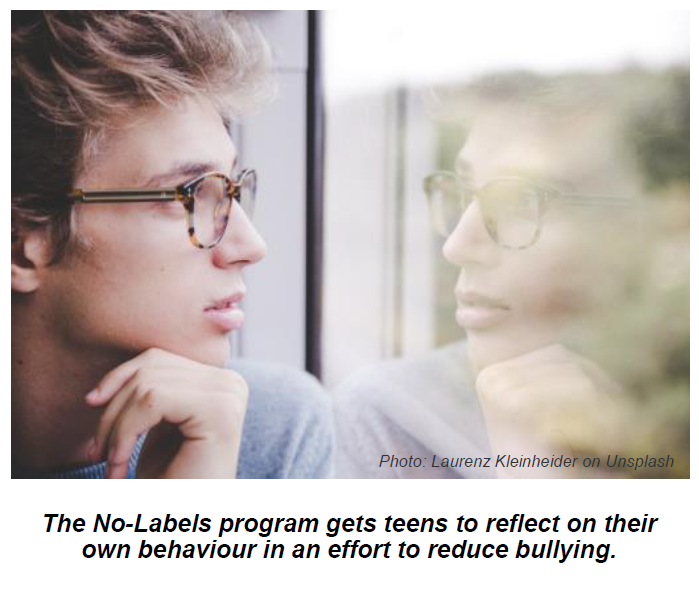
The program looks at bullying behaviours and strategies for managing these behaviours in an hour-long workshop for classes of students.
The program is based on recent research and links to the Australian Curriculum, but it was ultimately co-designed with young people in the ACT. In developing the program, MIEACT ran pilots and spoke to students.
Heidi Prowse, MIEACT CEO said that they discovered that young people had become very desensitised to education around bullying.
“They believe they know it all – the prevalence, the impact on mental health, the future implications for both the participants and the person experiencing bullying. They understand motivations for bullying and could cite examples of bullying behaviour,” she said.
“But they couldn’t tell us what to do, or even what they currently do, to overcome or manage bullying. When we started a discussion on strategies, the room fell silent.”
“So the program we created focuses on practical strategies that a young person could start to use as soon as they leave the room, whether they are engaged in, witnessing or experiencing that bullying behavior,” said Ms Prowse.
“We are looking for long term behavior change.”
In an address to the NSW Mental Health Association at the end of last year, No Labels Program Director Megan Mills said that it had been pleasing to see the impact of honest conversations around bullying behaviour, and strategies to address this behaviour.
“Most students – 84 percent – said that after the session they were more confident in implementing strategies to address bullying,” she said.
Ms Prowse said that some previous bullying-prevention programs had taken a prescriptive and judgmental approach – ‘do this and not this’ – but students had not really reflected on their own behaviour, and that this is a major difference in the No Labels program.
In fact, 65% of the students that MIEACT spoke to during the research and design phase said the current education on bullying was not representative and therefore not helpful for their experience.
“The feedback on the No Labels program was that it was much more representative of the student experience today,” said Ms Mills.
No Labels takes a three-pronged approach, looking at behaviours and strategies for those on all three sides of bullying – witnessing, experiencing and participating – so that students have tools, no matter what they are faced with. This helps remove the notion – and label – of ‘a bully’ and focuses on something changeable: behaviour. There is recognition that a person can at different times, be witnessing, or experiencing bullying or be participating in bullying behaviours.
The workshop is a mix of discussions, awareness- building and anonymous reporting and assessment by students of their own behaviours. They use technology so that participants can confidentially self-analyse their behaviour and disclose participation in bullying behaviour without fear of judgement or ‘labels’ from their peers. The facilitators can see the overall results and tailor the session for the experience in the room.
“Students are brought to reflect upon what their behavior means, what is the impact of their behavior. Then we go through skills for the children to build on to recognise and change their behaviour,” explained Ms Mills.
“We get down into the nitty gritty. If you are teasing and laughing with a friend – is that bullying? If you have a nickname for someone but haven’t checked they are ok with that – is that bullying?”
“This creates such a change in awareness. At the beginning of the workshops we ask students to tell us — confidentially – if they have ever participated in bullying. Usually around 50 percent tell us they have. At the end we see this goes up by 20 or 30 percent,“ said Ms Mills.
“At the end of the session, students say that they will need to check in with others about some of their behaviours, they recognise how they participate,” she said.
The session looks at four main types of bullying – physical, emotional, isolating others and cyberbullying.
“Student feedback says that looking at cyberbullying is really important. How and when to respond? Who to tell about it?”
The need for these sessions is clear – 86% of ACT students say they are concerned about the occurrence of bullying. Recently, MIEACT piloted a primary school program and the response from schools wanting the program has been high. They are now seeking funding to run these essential programs.
This article appeared in ParentACTion Magazine, Term 3, 2019.
